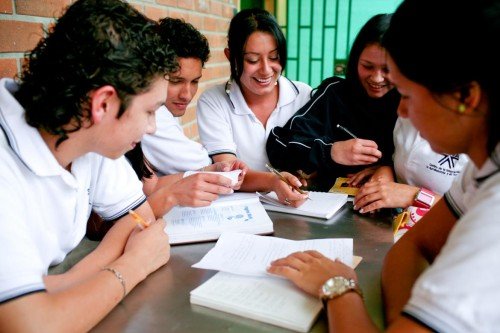
Sex education is an important topic that is often overlooked in Latin America. Despite the fact that many countries in the region have made progress in recent years, there is still a lot of work to be done to ensure that young people have access to accurate and comprehensive information about sexuality and sexual health.
One of the biggest challenges in Latin America is the lack of access to sex education in schools. Many countries in the region do not have mandatory sex education programs, and even when they do, the quality of the education provided can vary widely. This means that many young people are left to rely on misinformation and myths when it comes to their sexual health.
Another challenge is the stigma surrounding sexuality in many Latin American societies. Sex is often seen as a taboo topic, and discussions about it are often met with shame and embarrassment. This can make it difficult for young people to ask questions or seek out information about their sexual health, which can lead to further confusion and misinformation.
Stigma surrounding sexuality is a pervasive problem in many societies around the world, including in Latin America. Stigma refers to negative attitudes and beliefs that society holds about certain groups or behaviors. In the case of sexuality, stigma can manifest in a variety of ways, including shaming people for their sexual orientation, treating sexually transmitted infections (STIs) as shameful, or making assumptions about a person's character based on their sexual behavior.
There are many factors that contribute to the stigma surrounding sexuality in Latin America. One of the main factors is the influence of conservative religious values, which can lead to the belief that sex should only be practiced within the context of marriage and for procreation purposes. This can create a culture of shame and silence around sexuality outside of these prescribed norms.
Another factor is the influence of traditional gender roles, which can lead to the belief that men should be sexually active and aggressive while women should be passive and chaste. This can lead to the shaming of women who express their sexuality or choose to have multiple sexual partners.
Stigma surrounding sexuality can have serious consequences for individuals and communities. It can lead to negative mental health outcomes, such as depression and anxiety, as well as social isolation and discrimination. It can also discourage individuals from seeking out sexual health services or disclosing their sexual orientation, which can increase their risk of STIs and other health issues.
To address the stigma surrounding sexuality in Latin America, it is important to promote education and awareness around sexual health and human rights. This can include promoting comprehensive sex education in schools, providing access to sexual health services, and creating safe spaces where individuals can discuss their sexual experiences without fear of judgment. It is also important to challenge traditional gender roles and promote gender equality which can help to reduce the shaming of women and LGBTQ+ individuals.
Overall, addressing stigma surrounding sexuality is an important step towards promoting sexual health and human rights in Latin America and beyond.
Despite these challenges, there are some positive developments in the region. In recent years, there has been a growing movement towards comprehensive sex education that addresses not just the physical aspects of sex, but also the emotional, social, and cultural factors that influence sexuality. Many NGOs and civil society organizations are working to promote sex education in schools and to provide information and resources to young people.
One example of this is the organization "Amigos contra el SIDA" (Friends Against AIDS) in Mexico. This organization provides sex education programs in schools and communities, as well as counseling and support services for young people. They also work to promote awareness about sexual health issues, including HIV/AIDS, and to reduce the stigma surrounding these issues.
Another example is the "Plan Nacional de Educación Sexual Integral" (National Plan for Comprehensive Sex Education) in Argentina. This plan, which was implemented in 2006, aims to provide comprehensive sex education to all students in the country, with a focus on promoting gender equality and respect for sexual diversity.
In conclusion, while there are still many challenges to be addressed, the movement towards comprehensive sex education in Latin America is a positive development. By providing young people with accurate and comprehensive information about sexuality and sexual health, we can help them make informed decisions and lead healthy, fulfilling lives.







